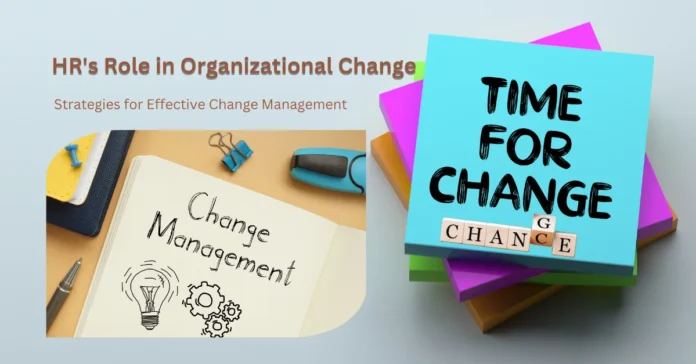Introduction
Organizational change is a constant in today’s fast-paced business landscape, driven by technological advancements, shifting market demands, and evolving workforce expectations. Effective change management is crucial for ensuring that these transitions are smooth and beneficial for both the organization and its employees. Human Resources (HR) plays a pivotal role in this process, acting as a bridge between leadership and employees, facilitating communication, and fostering a culture that embraces change.
The Role of HR in Change Management
HR is integral to the success of any change initiative. First and foremost, HR professionals advocate for change, clearly articulating the vision and benefits to all stakeholders. They are responsible for conducting thorough assessments to identify the needs for change, collaborating with leadership to create strategic plans that align with organizational goals. By engaging stakeholders early in the process, HR helps build trust and minimizes resistance.
Furthermore, HR designs and implements training programs that equip employees with the necessary skills to adapt to new systems or processes. This focus on development not only prepares the workforce for change but also enhances overall employee morale and engagement. Effective communication is another cornerstone of HR’s role; crafting a comprehensive communication plan ensures that employees are informed, supported, and motivated throughout the transition.
Strategies for Effective Change Management
To successfully manage change, HR can employ several key strategies:
- Create a Clear Vision: Articulate a compelling vision for the change that aligns with the organization’s goals.
- Foster a Culture of Adaptability: Encourage a mindset that values flexibility, resilience, and continuous learning.
- Monitor and Evaluate Progress: Establish measurable goals to assess the impact of the change and make necessary adjustments.
- Celebrate Successes: Recognize achievements during the change process to inspire and motivate employees.
By leveraging these strategies, HR can not only facilitate smoother transitions but also contribute to a more agile and engaged organizational culture.
Conclusion
In summary, HR’s role in organizational change is multifaceted and crucial for the success of change initiatives. By advocating for change, engaging stakeholders, providing training, and ensuring effective communication, HR can help organizations navigate the complexities of transformation. Investing in HR capabilities is essential for fostering an environment that not only accepts change but thrives in it.

